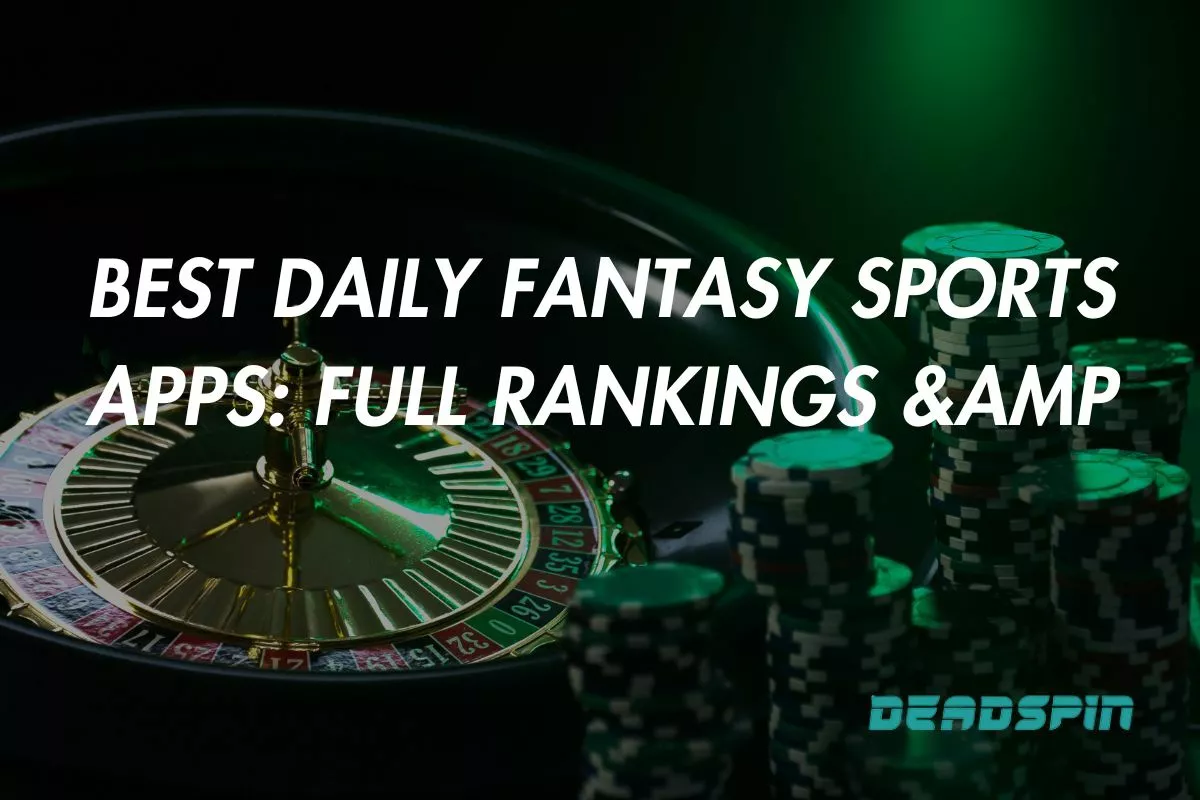- Betting Sites
- Sports Betting Glossary
- Best Betting Apps
- Legal Betting News
- Betting Bonuses
- Sportsbooks by State
- Arizona Sportsbooks
- Colorado Sportsbooks
- Connecticut Sportsbooks
- Illinois Sportsbooks
- Indiana Sportsbooks
- Iowa Sportsbooks
- Kansas Sportsbooks
- Kentucky Sportsbooks
- Louisiana Sportsbooks
- Maryland Sportsbooks
- Massachusetts Sportsbooks
- Michigan Sportsbooks
- NJ Sportsbooks
- New York Sportsbooks
- North Carolina Sportsbooks
- Ohio Sportsbooks
- PA Sportsbooks
- Tennessee Sportsbooks
- Vermont Sportsbooks
- Virginia Sportsbooks
- Wyoming Sportsbooks
- Betting in Canada
- Sportsbook Reviews
- Daily Fantasy Sports
- DFS Reviews
- Betting Calculators
- Betting Guides
- Payment Methods for Betting
- Social Sportsbooks
- Social Casino Reviews
- Real Prize Review
- Crown Coins Casino Review
- McLuck Review
- Stake.us Review
- Jackpota Review
- High 5 Casino Review
- Moonspin Review
- MegaBonanza Review
- MyPrize.us Review
- Lonestar Casino Review
- Speedsweeps Review
- Wow Vegas Review
- Sidepot.us Review
- PlayFame Review
- Baba Casino Review
- Spree Review
- Vegas Coins Review
- The Money Factory Review
- Spin Blitz Review
- Casino.click Review
- Hello Millions Casino Review
- Sweepnext Review
- Jumbo88 Review
- Gummy Play Review
- Moozi Casino Review
- Gold Treasure Casino Review
- Sweepstakes Casinos
- Social Betting News
- Promo Codes by Brand
- Legendz Review
- Onyx Odds Promo Code
- Fliff Promo Code
- Sportzino Promo Code
- Get Prophet X Promo Code
- Thrillzz Promo Code
- Real Prize Casino Promo Code
- Crown Coins Casino Promo Code
- McLuck Promo Code
- Stake.us Promo Code
- Jackpota Promo Code
- High 5 Casino Promo Code
- Moonspin Promo Code
- MegaBonanza Promo Code
- MyPrize.us Promo Code
- Lonestar Casino Promo Code
- Speedsweeps Promo Code
- Wow Vegas Promo Code
- Sidepot.us Promo Code
- Legendz Promo Code
- Baba Casino Promo Code
- Spree Casino Promo Code
- The Money Factory Promo Code
- Vegas Coins Promo Code
- Spin Blitz Promo Code
- Social Betting and Casino Promo Codes
- Similar Sweepstakes Casinos
Join The Discord
Betting
Social Betting
- Betting Sites
- Sports Betting Glossary
- Best Betting Apps
- Legal Betting News
- Betting Bonuses
- Sportsbooks by State
- Arizona Sportsbooks
- Colorado Sportsbooks
- Connecticut Sportsbooks
- Illinois Sportsbooks
- Indiana Sportsbooks
- Iowa Sportsbooks
- Kansas Sportsbooks
- Kentucky Sportsbooks
- Louisiana Sportsbooks
- Maryland Sportsbooks
- Massachusetts Sportsbooks
- Michigan Sportsbooks
- NJ Sportsbooks
- New York Sportsbooks
- North Carolina Sportsbooks
- Ohio Sportsbooks
- PA Sportsbooks
- Tennessee Sportsbooks
- Vermont Sportsbooks
- Virginia Sportsbooks
- Wyoming Sportsbooks
- Betting in Canada
- Sportsbook Reviews
- Daily Fantasy Sports
- DFS Reviews
- Betting Calculators
- Betting Guides
- Payment Methods for Betting
- Social Sportsbooks
- Social Casino Reviews
- Real Prize Review
- Crown Coins Casino Review
- McLuck Review
- Stake.us Review
- Jackpota Review
- High 5 Casino Review
- Moonspin Review
- MegaBonanza Review
- MyPrize.us Review
- Lonestar Casino Review
- Speedsweeps Review
- Wow Vegas Review
- Sidepot.us Review
- PlayFame Review
- Baba Casino Review
- Spree Review
- Vegas Coins Review
- The Money Factory Review
- Spin Blitz Review
- Casino.click Review
- Hello Millions Casino Review
- Sweepnext Review
- Jumbo88 Review
- Gummy Play Review
- Moozi Casino Review
- Gold Treasure Casino Review
- Sweepstakes Casinos
- Social Betting News
- Promo Codes by Brand
- Legendz Review
- Onyx Odds Promo Code
- Fliff Promo Code
- Sportzino Promo Code
- Get Prophet X Promo Code
- Thrillzz Promo Code
- Real Prize Casino Promo Code
- Crown Coins Casino Promo Code
- McLuck Promo Code
- Stake.us Promo Code
- Jackpota Promo Code
- High 5 Casino Promo Code
- Moonspin Promo Code
- MegaBonanza Promo Code
- MyPrize.us Promo Code
- Lonestar Casino Promo Code
- Speedsweeps Promo Code
- Wow Vegas Promo Code
- Sidepot.us Promo Code
- Legendz Promo Code
- Baba Casino Promo Code
- Spree Casino Promo Code
- The Money Factory Promo Code
- Vegas Coins Promo Code
- Spin Blitz Promo Code
- Social Betting and Casino Promo Codes
- Similar Sweepstakes Casinos
Join The Discord
Betting
Social Betting

















